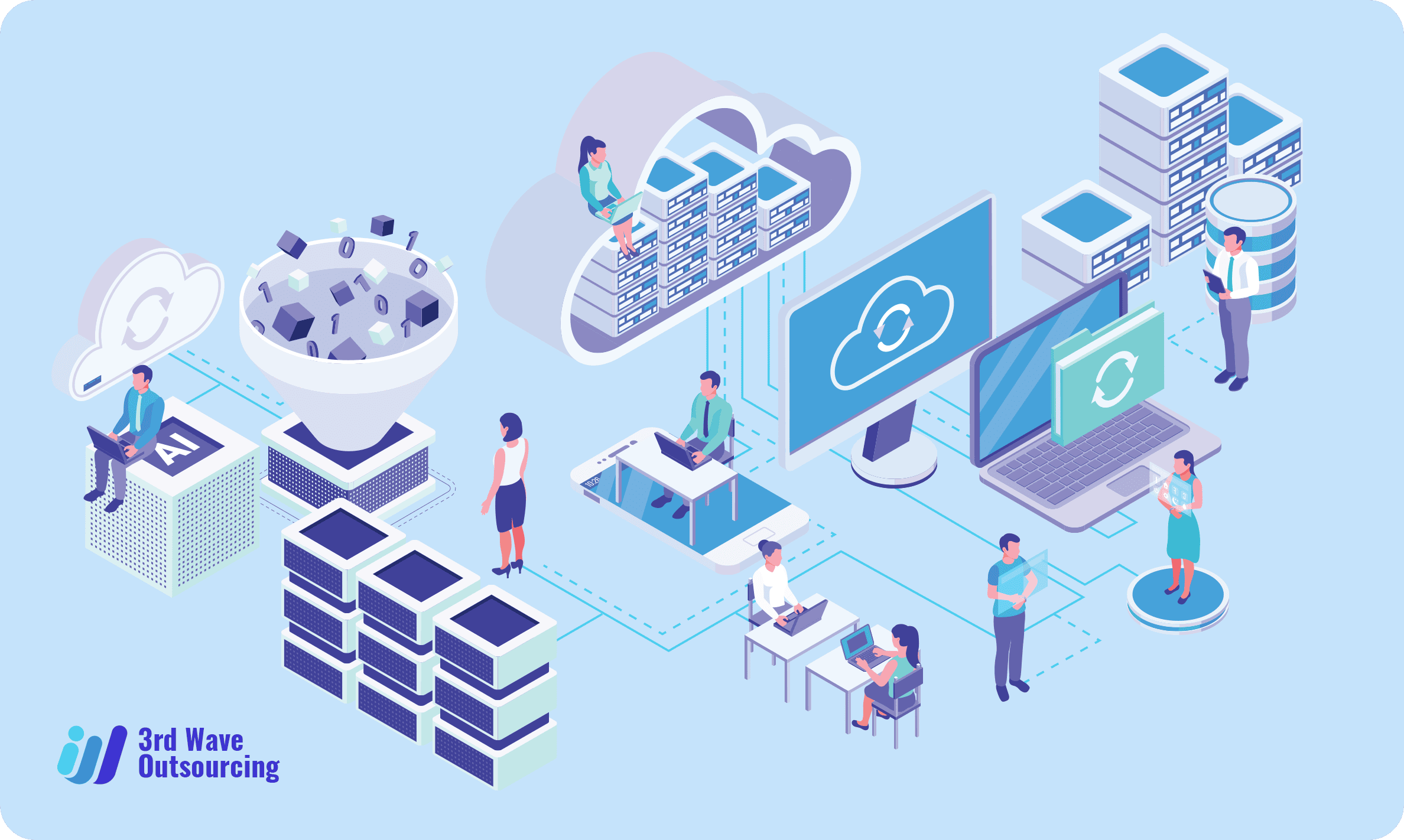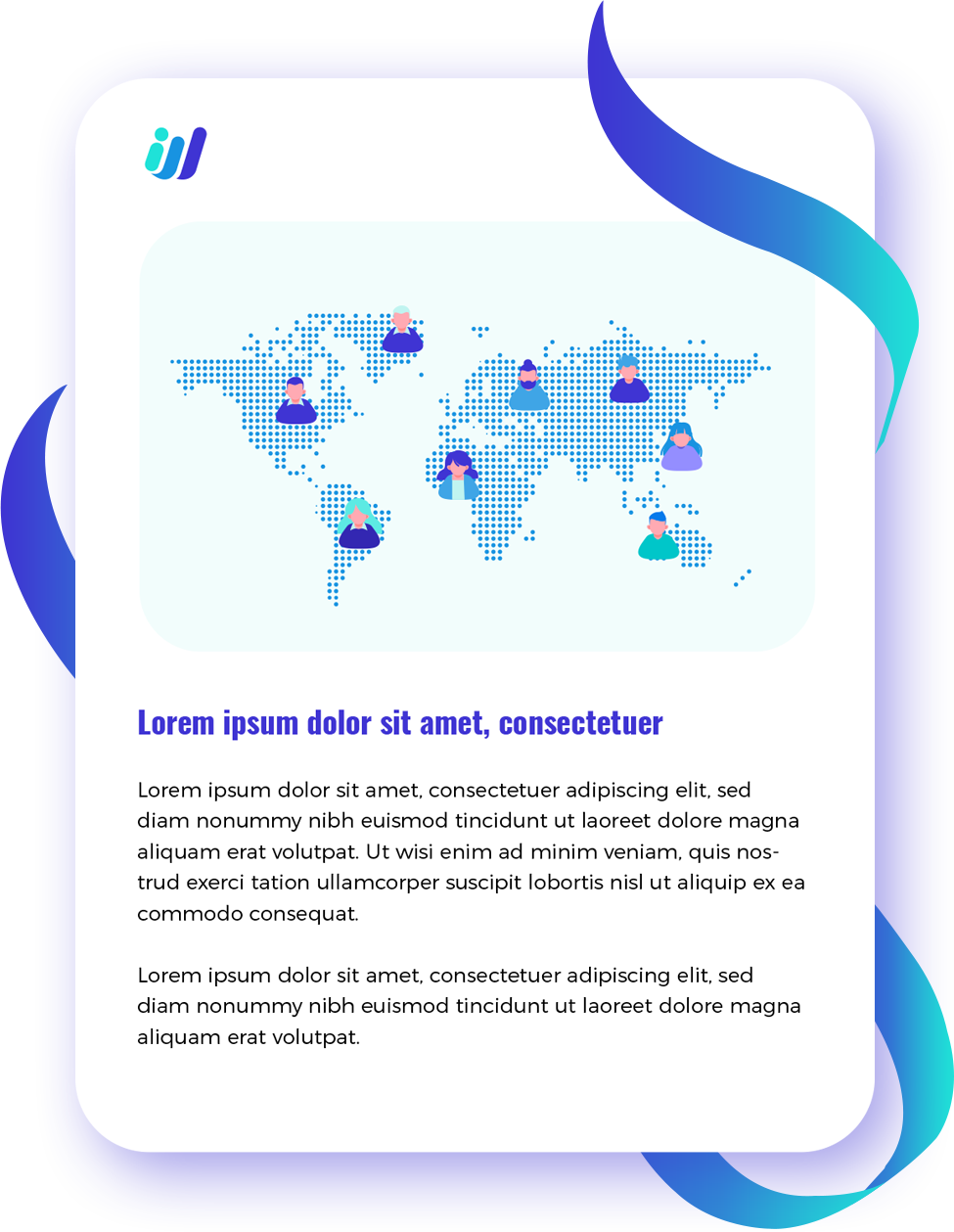The phrase “everything is getting outsourced” is common enough to be cliche, but what does it truly mean for your company?
With the development of new technologies, outsourcing has become an increasingly viable option for businesses looking to cut costs and increase productivity. We will uncover the role of technology in third wave outsourcing.
However, before you decide to outsource, there are a few factors to consider. Some of the most significant effects that technology has had on outsourcing are going to be covered here, along with advice on how to get the most out of it for your company.
Outsourcing Advantages
There is no denying that outsourcing can help you save money, increase productivity, and concentrate on what you do best. But as technology has progressed, so has the method by which we contract out work.
With the use of the web, we can now contract work to businesses all across the globe. This allows us to find the most qualified candidates regardless of their physical location. Video conferencing and other digital tools have made it simple to collaborate with people who aren’t physically present in the same room.
So, don’t let worries about the state of the industry’s technological infrastructure prevent you from considering outsourcing some of your company’s tasks. If you find the appropriate service provider, they will set you up with everything you need to succeed.
Technology’s Role in Outsourcing
Consider: without technological aid, how could you ever meet the ever-changing needs of your customers?
Technology advancements have allowed outsourcing to flourish in recent years. It’s much quicker, more effective, more accurate today. In reality, most customers prefer to communicate with you through your web portal since it gives them access to accurate, up-to-the-minute data on the progress of their project.
1. Automation
Automation could have significant effects on outsourcing, both positively and negatively.
Outsourcing automation has the potential to increase productivity while decreasing expenses. Automating mundane or time-consuming tasks with robotics and AI, for example, could free up human workers to focus on higher-value tasks. Many businesses may find it more financially viable to outsource in order to reduce labor costs and increase production.
In addition, automation can boost the reliability and precision of services that are contracted out. Automation increases output quality, as it reduces human error and allows machines to work without rest.
The outsourcing industry may suffer from the effects of automation. Concerns about job security stem from the fact that automated technology has the potential to make human workers obsolete. Outsourcing a service to a country with a lower cost of living could reduce job opportunities in both the country of origin and the country of destination.
In addition, the technologies used for automation could be vulnerable to cyberattacks, which could make automation a security risk. The safety of their infrastructure and their customers’ data must be guaranteed by any outsourcing service.
Automation has the potential to benefit internal operations while simultaneously harming external ones, such as outsourced services and the workforce. Organizations should weigh the pros and cons of automation before outsourcing services, and service providers should be aware of the potential ramifications and work to mitigate them.
In the next decade, outsourcing is expected to become increasingly defined by the shift from a focus on service to technology. Cloud computing, data security, automation, AI, digital communication, and remote work are all on the rise in 2018. In response, outsourcing firms are implementing new systems and strategies. These businesses can advance with the support of tools for managing projects and analyzing data from Big Data Analytics, Machine Learning, and Natural Language Processing.
2. Using Modern Methods
Innovations in the Partnership Model New forms of partnerships are emerging as a result of the opportunities presented by technological platforms. New collaborations are being shaped by a concern with outcomes and by digital activity.
The use of project management software to keep tabs on remote workers in real time has increased in 2018. In the coming years, the proliferation of virtual jobs and the gig economy will be facilitated by the development and implementation of software like this.
The usage of intelligent assistants, virtual agents, and other forms of service sharing is on the rise in modern call centers. These automated systems can deal with a high volume of requests while preventing common human blunders like disconnected consumers.
3. Cloud Computing
Cloud computing will no longer be exclusive to tech giants like IBM, Accenture, Microsoft, and Amazon.com Inc. The cloud computing market is predicted to surpass USD $200 billion in 2018 thanks in large part to the adoption of cloud-based solutions by smaller businesses.
Processes and business models are evolving to take use of intelligent automation and machine learning to increase productivity and precision. This change will accelerate in the years to come.
It is still important to exercise caution when selecting a service provider, despite the fact that old outsourcing structures and business procedures are giving way to technology changes. Immersion in the digital sphere raises privacy and safety concerns. Through the use of local knowledge in areas like recruitment, management, and compliance.


